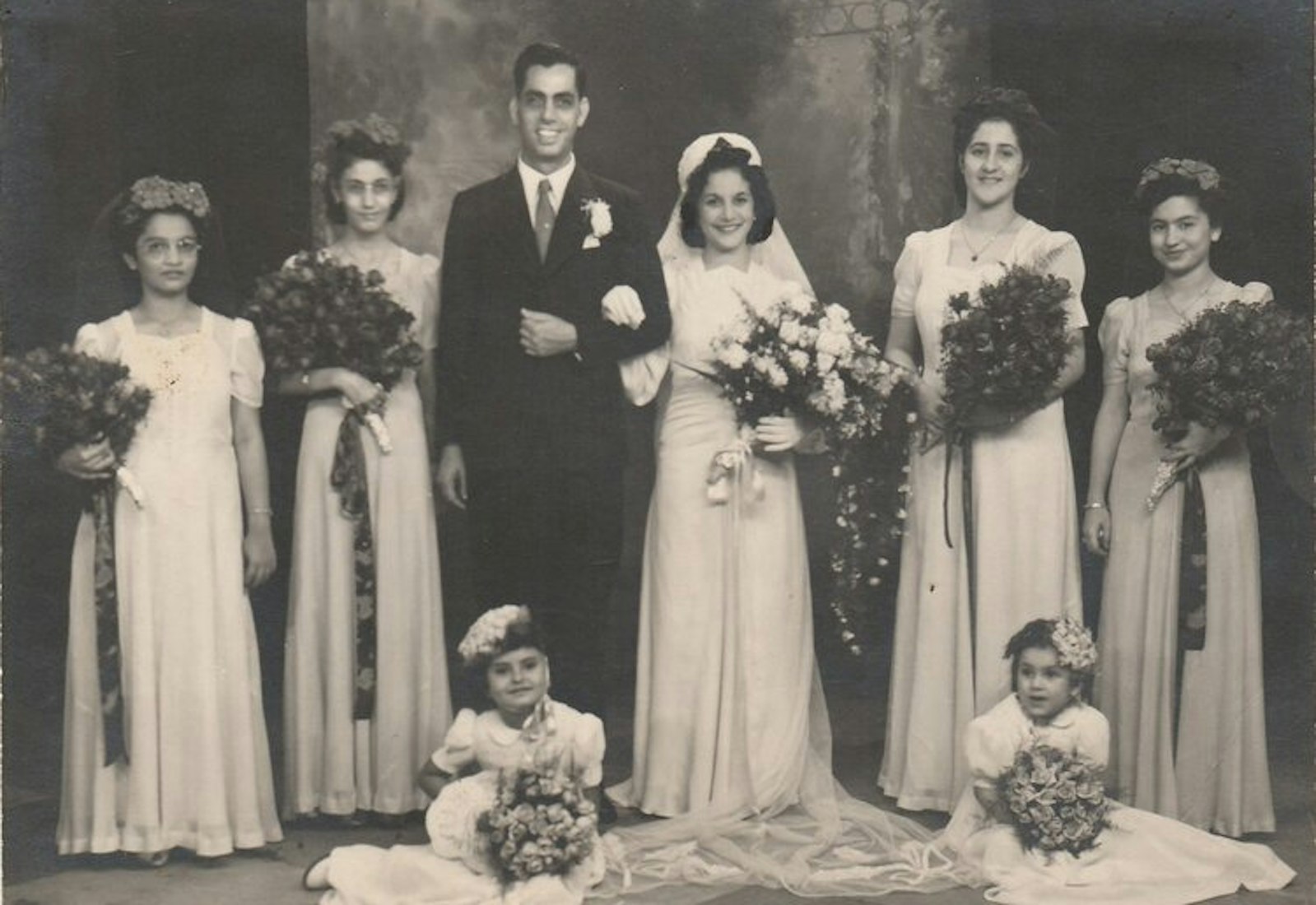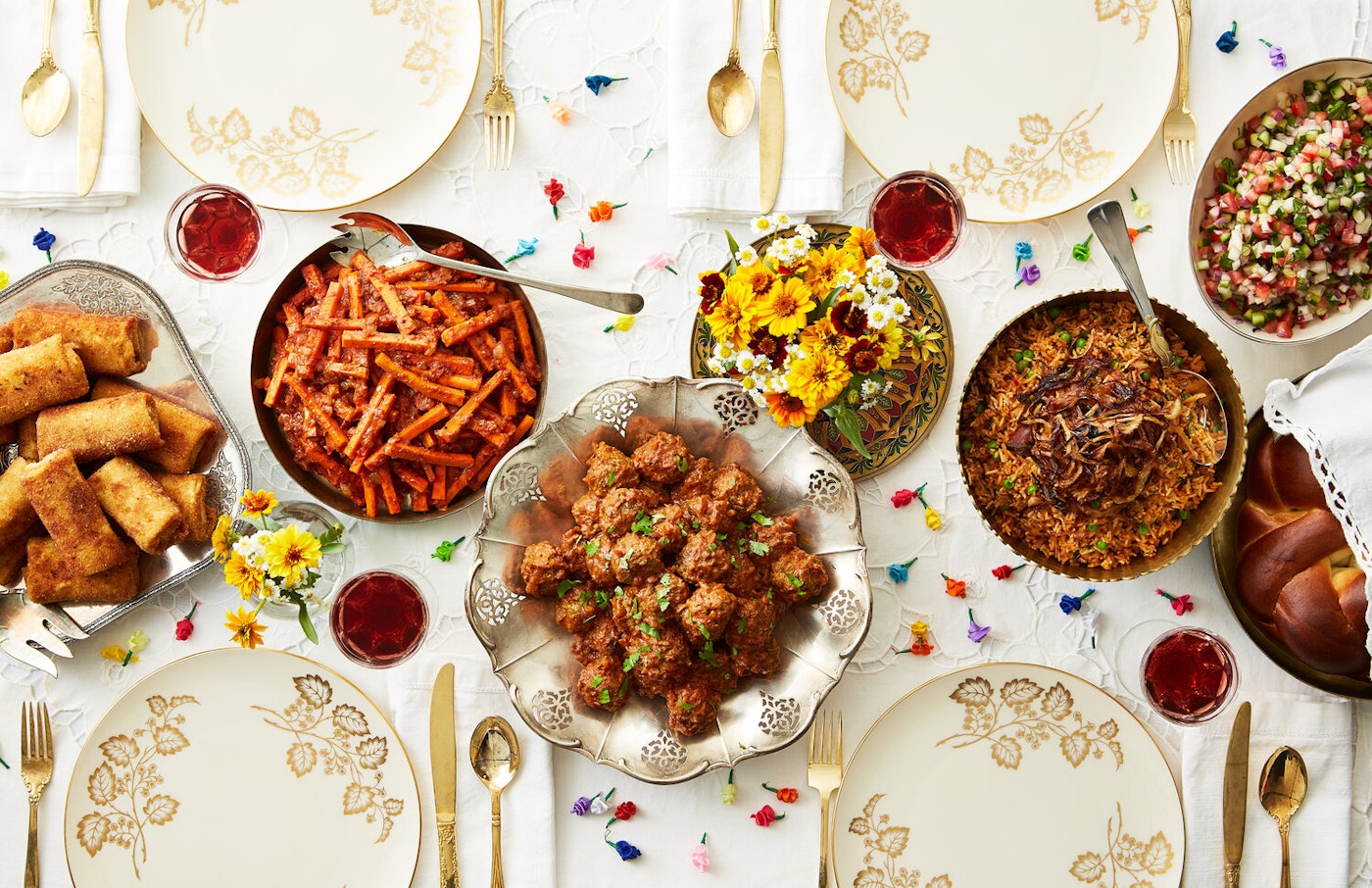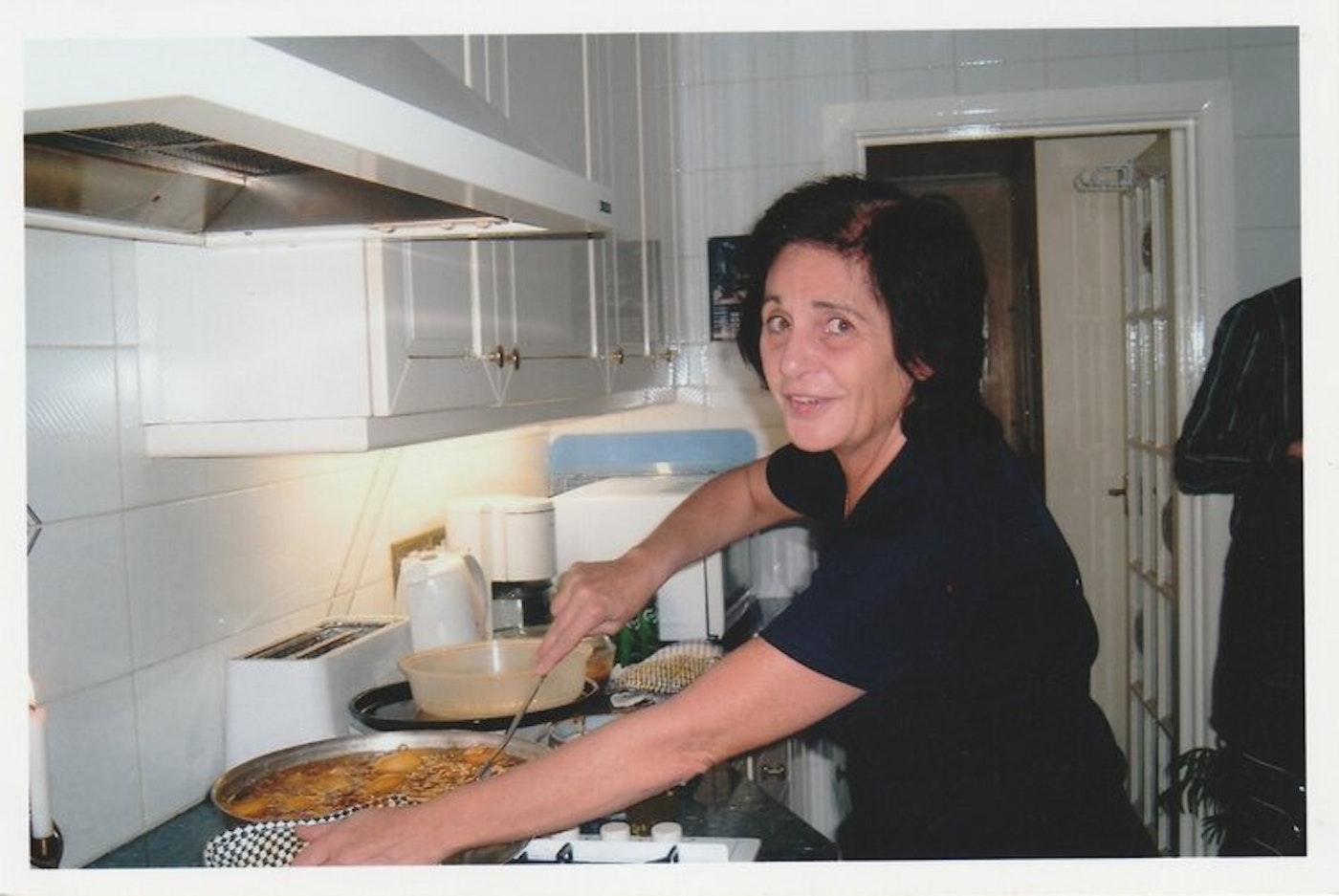Shared by Max Nye


On May 10, 1964, Max Nye’s mother Esther stepped onto a plane for the first time. She was 11-years-old and she had never left India before. Nearly a century earlier in 1877, Max believes, his great-great-grandfather moved his family from Baghdad to what was then Calcutta. They became part of the community of Baghdadi Jews in India— or, as Max calls them, the Jews of Baghdad — who migrated from Iraq and surrounding countries to India starting in the 18th century to work as merchants and live openly as Jews.
The community, which aligned itself with the British who controlled the country at the time, grew to approximately 5,000 people, less than a third of a percent of the population of the city, says Max, who is writing a cookbook called “Hammis Your Onions – Family Recipes from an Indian-Jewish Kitchen.” “In proportionate terms [it was a] very tiny community, but with a very strong cultural presence and identity,” Max adds. “I think there were… five synagogues and three schools.”
Like many of these Jews, Max’s family had ayahs or servants who looked after them and cooked for the household. In the kitchens of this community, Indian flavors were intermingled with Iraqi recipes and Jewish customs, creating a new cuisine and a dialect of sorts called “kitchen Hindi,” a blend of words in Hindi, Bengali, Persian, Arabic, and English. “Any words to do with the home or kitchen would be swapped around in a very jumbled up way,” says Max.
For Rosh Hashanah, for example, there are recipes like carrot meetha, which uses the Hindi word meetha, meaning sweet to describe it, and aloo makala, or fried potatoes, which pairs the Hindi word for potatoes aloo with a derivative of old Iraqi Arabic word meaning fried. “They borrowed different words from languages…. It kind of, in a way, summarizes their food as well. Their food is really a hybrid of Jewish influences, Middle Eastern influences, and Indian influences,” Max explains.
When his family arrived in London, Max’s grandmother Florence was at a loss in the kitchen. Once, when cooking a soup, he says, “she somehow accidentally used engine oil instead of cooking oil.” A terrible smell pervaded the air and the soup turned a dark blue. “That was the beginning and perhaps end of her cooking adventures,” he jokes.
When Max’s mother Esther was close to 30, her great-aunt Ruby called her “out of the blue and said it was time mom learned to make all of this food,” says Max. Ruby told her “the legacy needs to be passed on.” Esther went to Ruby’s home later that day. It was the first of what would become a string of cooking lessons with Ruby, her aunt Helen, and her daughter Triffiene. Others got wind of this and sent along their recipes, which Esther started to note in a brown book. “It was very much a family group endeavor,” adds Max.
Over the years, Esther’s continued to make the family recipes, both for everyday meals and special occasions. “My mother — a culinary powerhouse and a notorious insomniac — would wake as early as 4am and, unable to sleep, begin batch-cooking for the days or even weeks ahead,” Max explains.
A few dishes, however, were saved for holidays like Rosh Hashanah. “Sometimes if we were really lucky, we would get a dish called pantras,” says Max. The savory pancakes are rolled around turmeric scented chicken and then fried. Esther would make 60 or 70 of them and “This is the one dish that me, and my sister, and dad always squabbled over every year,” Max adds. They would ask Esther not to serve the pantras to their guests and “keep them back just for us.”
Slow-cooked beef curry and rice dishes like rose harissa and pea pilau were served on the holiday in the family’s living room where they would host 30 or so people. “We would clear it out, the sofas would go,” as would a mahogany table, says Max to make room for trestle tables encircled with friends and family.
To start the evening, there was always a series of Rosh Hashanah blessings, a tradition in many Mizrahi and Sephardi homes. Sometimes called a Seder, the tradition centers around a host of foods that symbolize wishes for the year to come. In Max’s family, dates are for sweetness, pomegranates for plentitude, and a fish’s head represents the start of the year, but there’s always a debate about the blessings in his family, he says. “Every single year, we have an argument about which foods and which blessings should be done.”
In recent years, the gatherings have grown smaller, but the family recipes are still made. For Max, the holiday, “is all about looking forwards and backwards at the same time,” it’s a time to look ahead and remember one’s cultural ancestry, he says. Last year, his son was born on Rosh Hashanah. “There’s no greater new beginning.”

